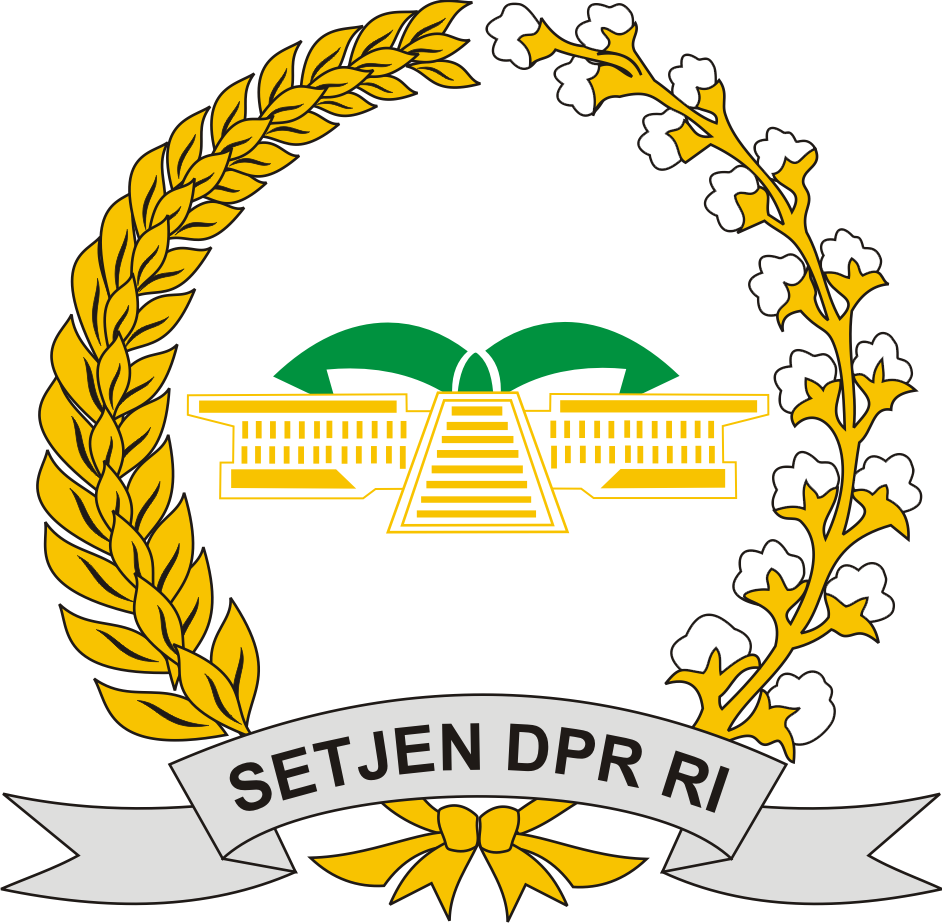Jaminan Kehilangan Pekerjaan Dampak Pandemi Covid-19: Pengaturan, Manfaat, dan Perbandingannya dengan Negara Lain (Job Loss Insurance Impact of Covid-19 Pandemic: Regulations, Benefits, and Comparisons with Other Countries)
Abstract
The Covid-19 pandemic caused the world economy to experience a sharp recession of 4.4% to 5.2%. The labor market is one affected sector marked with a high rate of layoffs. One of the government’s efforts to overcome this phenomenon is by adopting a job loss insurance scheme. This research discusses the background of the job loss insurance regulation and system in Indonesia and how job loss insurance could overcome the impact of layoffs due to economic recession. The method used in this research is normative juridical legal research. In analyzing legal materials, this research uses qualitative descriptive analysis. Job loss insurance is an assurance provided to those who were affected. When workers experience layoffs, they will receive benefits of cash, access to market information, and job training. It was found that a job loss insurance scheme could accelerate former workers to find permanent employment and prevent them from losing their motivation to seek a job. Studies on the implementation of job loss insurance in other countries show that the job loss insurance scheme effectively reduces unemployment numbers, especially during the time of economic recession. As a suggestion from this research, the job loss insurance needs to be socialized, and the job training needs to be adjusted to market demand to fully benefiting the workers.
Abstrak
Pandemi Covid-19 menyebabkan pertumbuhan perekonomian dunia mengalami resesi tajam yaitu kisaran 4,4%-5,2%. Pasar kerja menjadi salah satu sektor yang terdampak ditandai dengan tingginya angka pemutusan hubungan kerja (PHK). Salah satu upaya pemerintah untuk mengatasi gejala ini adalah dengan pengadopsian skema jaminan kehilangan pekerjaan. Artikel ini membahas latar belakang diadakannya jaminan kehilangan pekerjaan serta sistemnya di Indonesia dan cara skema jaminan kehilangan pekerjaan dapat menanggulangi dampak pemutusan hubungan kerja akibat resesi ekonomi. Metode penelitian yang digunakan adalah penelitian hukum yuridis normatif. Dalam menganalisis bahan hukum, penelitian ini menggunakan analisis deskriptif kualitatif. Jaminan kehilangan pekerjaan merupakan bentuk jaminan sosial yang diberikan kepada pekerja yang mengalami pemutusan hubungan kerja. Apabila pekerja mengalami PHK, pekerja akan menerima manfaat berupa uang tunai, akses informasi pasar kerja, dan pelatihan kerja. Ditemukan bahwa skema jaminan kehilangan pekerjaan dapat mempercepat eks pekerja mendapatkan pekerjaan permanen dan mencegah eks pekerja kehilangan motivasinya untuk mencari kerja. Studi pelaksanaan unemployment insurance di negara lain menunjukkan bahwa skema unemployment insurance efektif dalam mengatasi jumlah pengangguran, khususnya dalam masa resesi ekonomi. Sebagai saran dari penelitian ini, skema jaminan kehilangaan pekerjaan perlu disosialisasikan dan pelatihan kerjanya disesuaikan dengan permintaan pasar agar benar-benar memberikan manfaatnya.
Keywords
Full Text:
PDFReferences
Jurnal
Abdullah, Junaidi. “Bentuk-Bentuk Jaminan Sosial dan Manfaatnya bagi Tenaga Kerja dalam Hukum Buruh.” Yustisia. Vol. 9, No. 1. 2018.
Adillah, Siti Ummu dan Sri Anik. “Kebijakan Jaminan Sosial Tenaga Kerja Sektor Informal Berbasis Keadilan Sosial untuk Meningkatkan Kesejahteraan.” Yustisia. Vol. 4 No. 3. 2015.
Agus, Dede. “Perkembangan Pengaturan Jaminan Sosial Tenaga Kerja dalam rangka Perlindungan Hukum Buruh/Pekerja.” Fiat Justisia Jurnal Ilmu Hukum. Vol 8 No. 1. 2014.
Brown, Chad P. dan Caroline Freund. “Active Labor Market Policies: Lessons from Other Countries for the United States.” Peterson Institute for International Economics. Vol. 19 No. 1. Januari. 2019.
Browning, M. dan T. Crossley. “Unemployment Insurance Benefit Levels and Consumption Changes.” Journal of Public Economics. Vol. 80 No.1. 2001.
Chimerine, Lawrence, et al. “Unemployment Insurance as an Economic Stabilizer: Evidence of Effectiveness Over Three Decades.” Unemployment Insurance Occasional Paper. 99-8. 1999.
Sava, Anca-Stefania. “The Role of Unemployment Insurance During the Economic and Financial Crisis.” Economic Applied Informatics. No. 1. 2010.
Dong Y., et al. “Epidemiology of Covid-19 Among Children in China.” American Academy of Pediatrics. Vol. 133 No. 9. 2020.
Gruber, J. “The Consumption Smoothing Benefits of Unemployment Insurance.” American Economic Review. Vol. 87 No.1. 1997.
Kamimura, Yasuhiro dan Naoko Soma. “Active Labour Market Policies in Japan: a Shift Away from the Company-Centred Model.” Journal of Asian Public Policy. Vol. 6 No. 1. 2013.
Kvist, Jon. “Denmark: A New Unemployment Insurance Scheme for the Future Labour Market.” ESPN Report 2017/45. Juni 2017.
Moffitt, Robert A. “Unemployment Benefits and Unemployment: the Challenge of Unemployment Benefits is to Protect Workers While Minimizing Undesirable Side Effects.” IZA World of Labor. Vol 13. Mei 2014.
Nicholson, Water dan Karen Needels. “Unemployment Insurance: Strengthening the Relationship between Theory and Policy.” Journal of Economic Perspectives. Vol. 20 No. 3. 2006.
Pakpahan, Aknolt Kristian. “COVID-19 dan Implikasi Bagi Usaha Mikro, Kecil, dan Menengah.” Jurnal Ilmiah Hubungan Internasional. Edisi Khusus. 2020.
Ren L-L., et al. “Identification of a novel coronavirus causing severe pneumonia in human: a descriptive study.” Chin Med J. Vol. 145. No. 6. 2020.
Schimieder, Johannes F. dan Till von Wachter. “The Effect of Unemployment Insurance Benefits: New Evidence and Interpretation.” Nber Working Paper. No. 22565. Agustus 2016.
Tung, Le Than. “Role of Unemployment Insurance in Sustainable Development in Vietnam: Overview and Policy Implication.” Entrepreneurship and Sustainability Issues. Vol. 6 No. 3. Maret 2019.
Yamali, Fakhrul Rozi dan Ririn Noviyanti Putri. “Dampak Covid-19 terhadap Ekonomi Indonesia.” Journal of Economics and Business. Vol. 4 No 2. 2020.
Buku
AJSI. Asuransi/Jaminan Sosial di Indonesia. Jakarta: PT Komunikajaya Pratama. 1995.
Corson, et al. A Study of Unemployment Insurance Recipients and Exhautees: Findings from a National Survey. Washington D.C.: U.S. Department of Labor. 1990.
Dionne, E.J. Why Social Insurance? Social Security Brief No. 6. Washington, D.C: National Academy of Social Insurance. 1999.
International Labour Organization. Comparative Review of Unemployment and Employment Insurance Experiences in Asia and Worldwide. Thailand: International Labour Organization. 2013.
International Labour Organization. International Practice of Income Protection for Unemployed Persons: Implications for Indonesia. Jakarta: International Labour Organization. 2020.
Kertonegoro, Sentanoe. Jaminan Sosial: Prinsip dan Pelaksanaanya di Indonesia. Jakarta: Mutiara, 1996.
Japan Institute of International Affairs. Towards. A More Resilient Society: Lessons from Economic Crises. Tokyo: the Japan Institute of International Affairs. 2012.
Organisation for Economic Co-Operation and Development. Boosting Jobs and Incomes. Policy Lessons from Reassessing the Jobs Strategy. Paris: OECD. 2006.
Organisation for Economic Co-Operation and Development. The OECD Tax-Benefit Model for Denmark. Paris: OECD. 2018.
Perwira, Daniel, et al. Perlindungan Tenaga Kerja Melalui Sistem Jaminan Sosial: Pengalaman Indonesia. Jakarta: Lembaga Penelitian Smeru. 2003.
Rozada, Martin Gonzales, et al. Protecting Workers against Unemployment in Latin America and the Caribbean: Evidence from Argentina. Argentina: Inter-American Development Bank. 2011.
Asenjo, Antonia dan Clemente Pignatt. Unemployment Insurance Scheme Around the World: Evidence and Policy Options. S.l: International Labour Organization. 2019.
Makalah
International Labour Organization. “Unemployment Insurance Income Security Measures and Active Labour Market Policies in ASEAN.” Prosiding ASEAN Tripatrite Seminar. Ho Chi Minh City Vietnam 20-22 Maret 2012.
Pustaka dalam Jaringan
Aichi Labour Burau. “To Those Who Have Left Their Jobs.” https://jsite.mhlw.go.jp/aichi-foreigner/var/rev0/0110/3895/2013819175422.pdf., diakses tanggal 25 Februari 2021.
Anglo Info. S.a. “Unemployment Insurance.” https://www.angloinfo.com/how-to/japan/working/unemployment., diakses tanggal 24 Februari 2021.
BPJS Ketenagakerjaan. S.a. “Jaminan Kehilangan Pekerjaan.” https://www.usp2030.org/gimi/RessourcePDF.action;jsessionid=5F8CvqUPByjnfjAH2fRGBdpLX-l3AGkG0eU6ZFfYrWrAGTQ107zc!445242879?id=56864., diakses tanggal 20 Februari 2021.
Fauzia, Mutia. 6 November 2020. “Dampak Pandemi: Indonesia Resesi, Pengangguran Tembus 9,77 Juta.” https://money.kompas.com/read/2020/11/06/081247126/dampak-pandemi-indonesia-resesi-pengangguran-tembus-977-juta?page=all., diakses tanggal 20 Februari 2021.
Idris, Muhammad. 22 Januari 2019. “Banyak Peserta BPJS TK Keluar sebelum Pensiun, Ini Alasannya.” https://finance.detik.com/berita-ekonomi-bisnis/d-4395592/banyak-peserta-bpjs-tk-keluar-sebelum-pensiun-ini-alasannya, diakses tanggal 20 Februari 2021.
Julita S., Lidya. 5 Februari 2021. “RI Masih Resesi! PDB Kuartal IV-2020 Tumbuh Negatif 2,19%,” https://www.cnbcindonesia.com/news/20210205063756-4-221192/ri-masih-resesi-pdb-kuartal-iv-2020-tumbuh-negatif-219, diakses tanggal 20 Februari 2021.
Nordic Council of Minister. S.a. “Unemployment Benefit in Denmark,” https://www.norden.org/en/info-norden/unemployment-benefit-denmark, diakses tanggal 23 Februari 2021.

This work is licensed under a Creative Commons Attribution-NonCommercial-ShareAlike 4.0 International License.
Refbacks
- There are currently no refbacks.






 Kania Jennifer Wiryadi, Bayu Novendra
Kania Jennifer Wiryadi, Bayu Novendra








